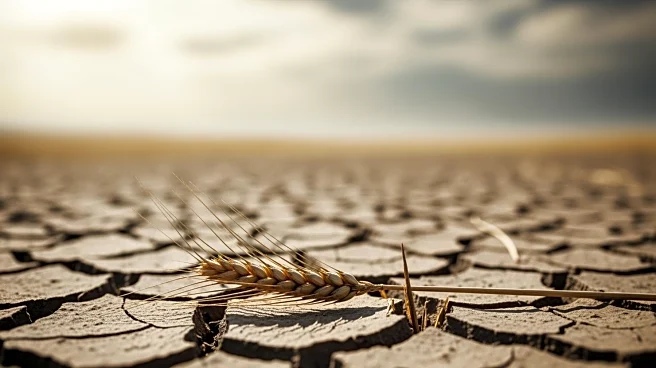What's Happening?
The Food and Agriculture Organization (FAO) has released a report detailing $3.26 trillion in global agricultural losses due to disasters over the past 33 years. These losses average $99 billion annually, affecting cereals, fruits, vegetables, meat, and dairy
production. Asia has been particularly impacted, accounting for 47 percent of global losses. The report emphasizes the potential of digital technologies to mitigate disaster risks, highlighting tools such as AI, drones, and sensors. The FAO calls for proactive strategies to reduce losses and protect vulnerable populations.
Why It's Important?
The report highlights the significant threat that natural disasters pose to global food security and agricultural productivity. The economic impact of these losses is profound, affecting livelihoods and economies worldwide. The emphasis on digital technologies offers a path forward, providing real-time monitoring and early warning systems that can help mitigate risks. The findings underscore the need for international collaboration and investment in disaster risk reduction to safeguard food systems and support sustainable development.
What's Next?
The FAO's report calls for the integration of digital technologies into disaster risk management strategies. This includes expanding access to parametric insurance and enhancing early warning systems. The focus on technology-driven solutions may lead to increased investment in agricultural innovation. The report also suggests addressing infrastructure damage and ecosystem degradation as critical components of long-term recovery efforts. Stakeholders may need to collaborate on developing comprehensive policies to mitigate the impacts of disasters on agriculture.
Beyond the Headlines
The report highlights the broader implications of disasters on agriculture, including market disruptions and ecosystem degradation. These challenges require a holistic approach to disaster risk management, considering social, economic, and environmental factors. The emphasis on digital technologies reflects a shift towards proactive risk reduction, moving away from reactive responses. This approach aligns with global efforts to enhance resilience and sustainability in food systems.















